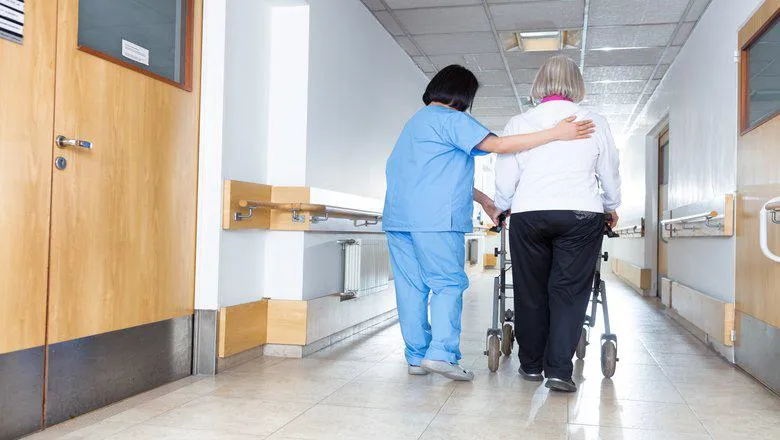30 November 2018
Breathlessness treatments do reduce patient distress
According to new research from the Cicely Saunders Institute.

This could have implications for how services manage this troubling symptom, experienced by over two million people across the UK.
Breathlessness is a common symptom in advanced disease and can lead to panic and anxiety for patients and their family. It can trouble people even when resting or performing light activities around the home. With our aging population and increasing multi-morbidity, the number of people affected by breathlessness worldwide is set to rise.
Published today in the journal Thorax, the study combined the findings of existing research to better understand ‘holistic’ services for people with advanced disease experiencing breathlessness. These services aim to improve a person’s ability to live with and manage their breathlessness by putting the person before their disease. They do this by providing information and education, psychological support, and encouraging self-management strategies that patients and their carers can continue to use.
There are no drug treatments licenced for breathlessness, but drug-free treatments such as breathing exercises or using a handheld fan can be used to good effect. These and the philosophy of palliative care that focuses on quality of life are brought together in these ‘holistic’ services.
Researchers found that patients who accessed these services were less distressed and depressed due to breathlessness. In interviews, people said they felt more in control and more confident in managing their breathlessness, were less isolated, and able to get back to their daily activities. Both patients and their carers, including family, said they appreciated the tailored education that helped them understand their breathlessness better. They particularly valued the simple management tips and the expert staff who took a dignified approach to their care.
Senior author Dr Matthew Maddocks from King’s College London said: “By using breathlessness as a marker of disease burden, these services prompt input from experts across different specialties to manage symptoms and concerns using a person-centred approach. Our research uncovered the wide-range of benefits and allows us to understand what patients and their family value most.”
Professor Irene Higginson, Director of the Cicely Saunders Institute at King’s College London and co-author of the research, said: “This work forms part of our programme to tackle breathlessness. This is such a neglected and frightening symptom. Imagine if every breath you took caused panic and fear and you thought you could not breathe more.
“These services contain straightforward, usually drug-free, approaches, such as information cards and plans to help at home in a crisis, practical aids and tips, as well as support for the whole person and family through palliative care. They could make a major difference to the quality of life of many millions of people in the UK.”
Margaret Ogden, a patient and public representative for the project said: “With my illness, breathlessness is the main and most problematic symptom for me. My mother also had suffered from breathlessness – she had terminal cancer. And my 90 year old uncle now currently suffers from it – he has asbestos on the lungs. It is such a debilitating symptom and has a huge impact on quality of life. Anything to reduce the impact of this symptom would have been a great help to me and my family”
Read the paper here: http://thorax.bmj.com/cgi/content/full/thoraxjnl-2018-211589


